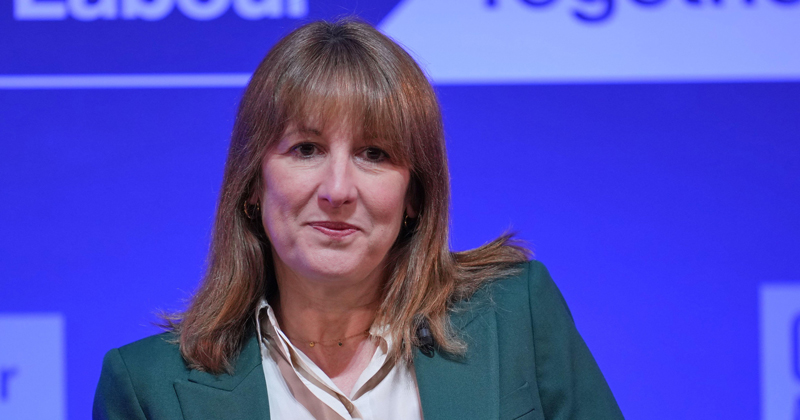Labour has pledged to ensure every primary school in England has its own library, through a scheme unveiled by Rachel Reeves today.
The chancellor set out the plan in a speech at the Labour Party’s annual conference in Liverpool today.
The scheme will create new libraries in 1,700 primary schools that currently do not have them.
The government said the chancellor had “committed over £10 million” to the scheme, and that details will be set out in due course. Funding is coming from £132.5m of “dormant assets” identified by Reeves in the government’s June spending review.
Split between 1,700 schools, £10 million would leave each with just under £5,900. It is unclear if schools would get additional money to staff the new libraries.
Paul Whiteman, general secretary of school leaders’ union NAHT, said some schools “may face challenges in terms of space and staffing”, but said he hopes they will be able “to use this funding to help with that”.

Addressing Labour’s conference today, Reeves recalled her own school library as a child being “turned into a classroom, because there were more students than there was space”.
“A generation later, many more kids have that experience,” she added. Today in England, there are 1,700 primary schools that don’t have a school library. That’s not right.”
Reeves committed to “providing a library in every single primary school in England by the end of this Parliament”.
The chancellor, whose parents were primary teachers, hailed the project “a statement of the value that this government places on all our children’s futures”.
“I believe in a Britain based on opportunity, where ordinary kids can flourish unhindered by their backgrounds,” she added.
A regional breakdown shared by the government shows the majority of schools without library are in northern England and the Midlands.
The North East has the highest proportion with 18 per cent, followed by the North West with 16 per cent, and the West and East Midlands. The South East has the lowest proportion, with just six per cent, followed by the East of England, and London.
Schools need more funding, warns union
National Education Union general secretary Daniel Kebede welcomed the news, saying schools had been forced to close library amid funding shortages. This “deprives children of an essential part of their education”.

But he said the pledge “must be a first step in addressing the chronic funding shortfalls that mean schools lack the resources to provide engaging and successful learning in all subjects”.
He called on Reeves to “address the funding shortfall for schools and colleges” when she delivers the autumn budget in November.
The School Library Association (SLA) hailed it “a landmark moment”, but said that “to be successful”, every school must “be equipped with the skills and funds they need to maintain, manage and promote” their library.
Rachel Harrison, national secretary of GMB union, said: “Every child deserves access to the best books. And every school support worker wants to help open children’s imaginations to the worlds inside books – and get them engaged in learning.
“I know our tens of thousands school support staff members will be thrilled by the chancellor’s announcement. And what it means to invest in all our schools and children across the country.”
The National Literacy Trust and Penguin Books, which have been campaigning for libraries for all UK primary schools with their Libraries for Primaries campaign, also welcomed the news.
Chief executive Jonathan Douglas said it is “game-changing” and will “truly cement reading for pleasure as a national priority”.
Alex Scheffler, illustrator of children’s books including The Gruffalo, described it as “a moment of real hope”.
“A school library is more than just a room full of books – it’s a place where imaginations grow, confidence builds, and a lifelong love of reading takes root,” he said. “Every child deserves that space, no matter where they live or what their background is.”








What like breakfast clubs in all schools? She is delusional. Neither will happen as there is not enough money and how they going to be managed and how do they get the books even if they have space.